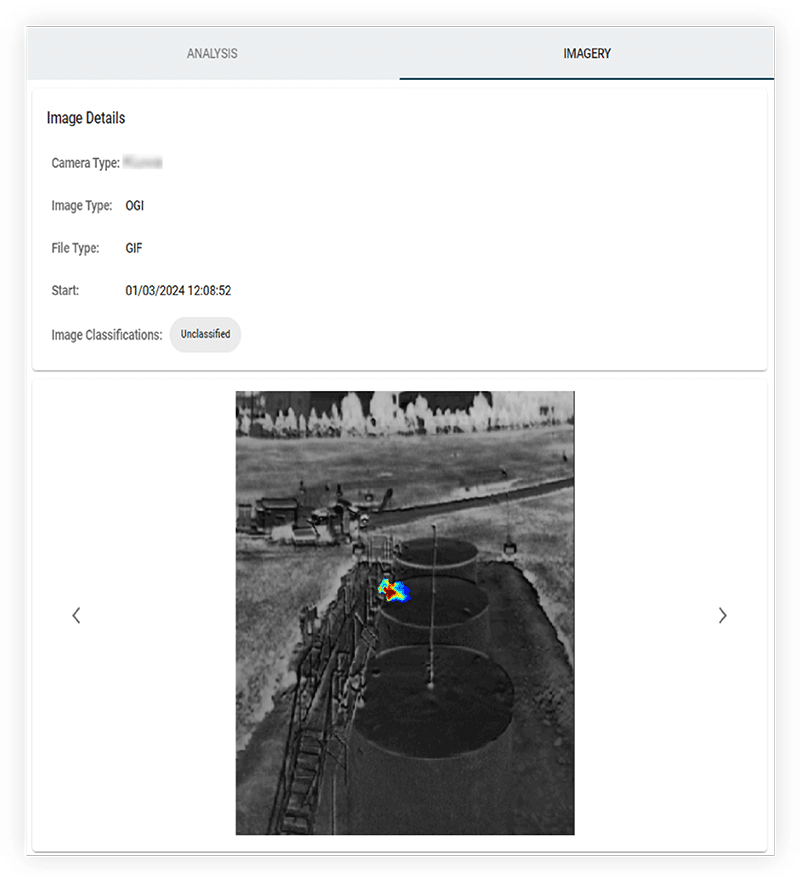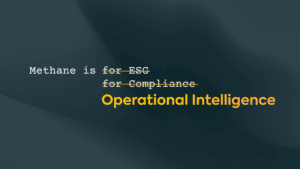Case Studies
Outcomes tailored to your business
Our flexible partnerships deliver the results our clients care about. On schedule and on budget.
Rebalancing Existing Technology
Operator had existing emissions monitoring technology deployed around its assets, but the deployment was largely driven by cost per Mcfe rather than risk. With two types of measurement already in place, the operator needed to optimize its allocation of resources and technology to reduce their emissions risk exposure.
Project Canary conducted a thorough risk analysis to prioritize deployment on the highest-risk assets, particularly those with a higher probability of being super emitters. The operator transitioned from LOE-based decision-making to a risk-based approach, eliminating the use of satellites and adjusting the flyover frequency. Additionally, we trained lease operators to utilize the data effectively to streamline operations.
Sensor Allocation and Emissions Risk Before and After Project Canary Partnership
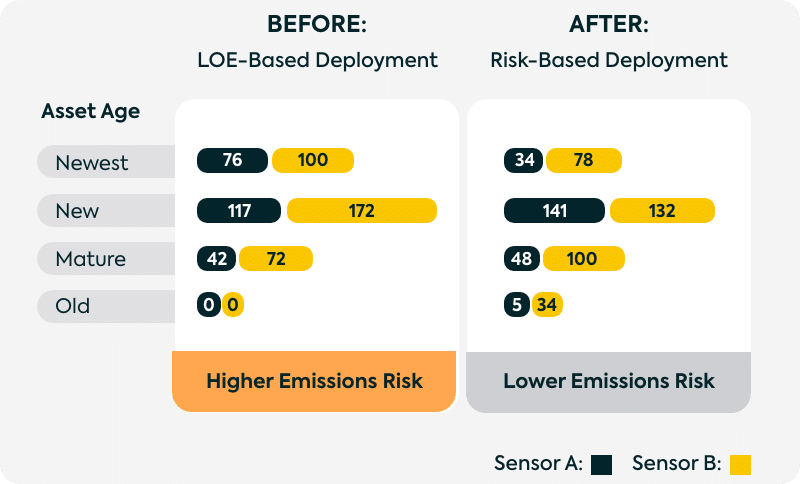
0x
ROI on measurement tech by identifying high-risk sites0%
Faster field team response time to leaks0%
Reduction in projected Waste Emissions Charge (WEC) exposureSensor Allocation and Emissions Risk Before and After Project Canary Partnership
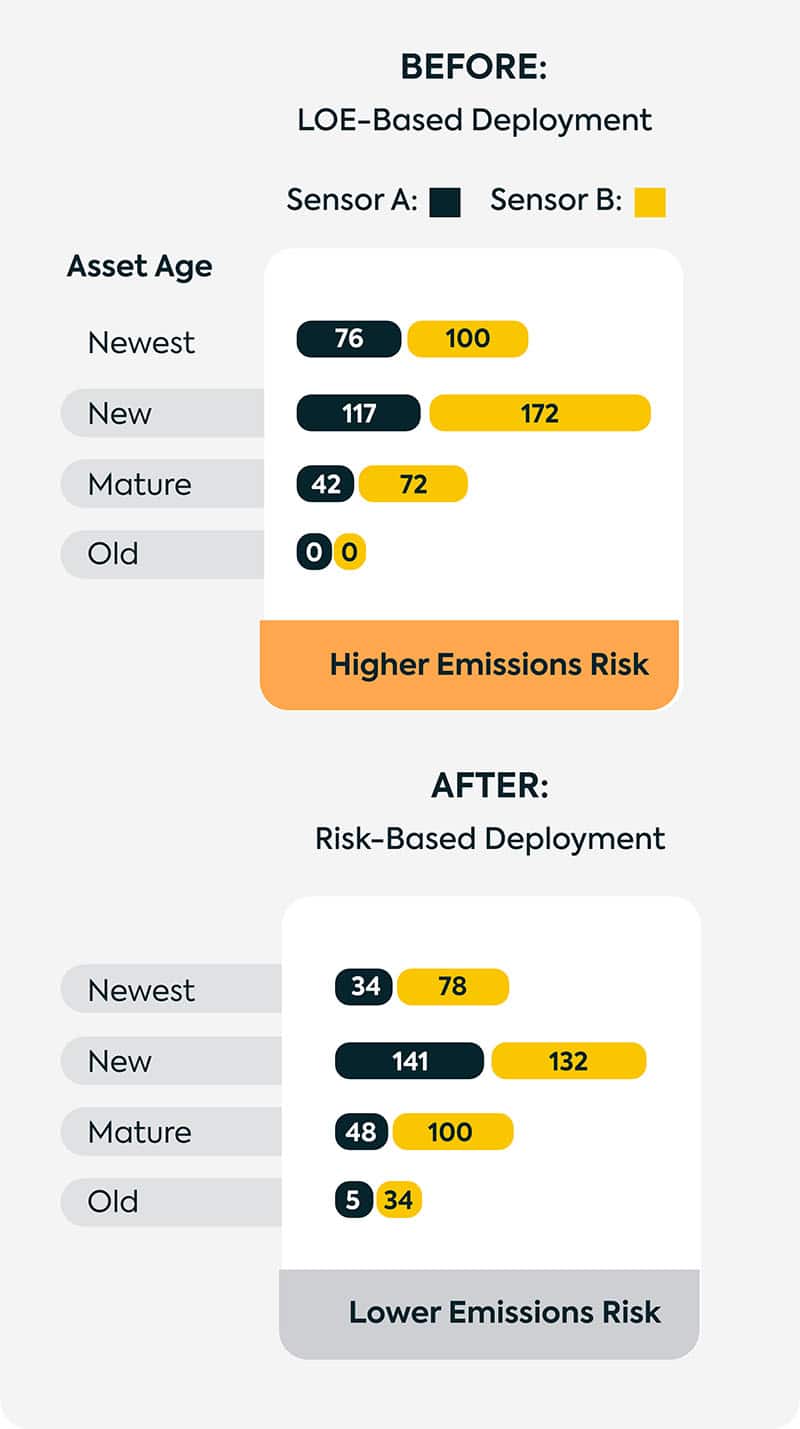
Efficient Capital Deployment
The operator aimed to stay off the Super Emitter Program (SEP) list and reduce Subpart W emissions. Although they budgeted for equipment retrofits, they hadn’t accounted for Other Large Release Events (OLRE), which are crucial to Subpart W reporting. They needed a more effective capital strategy to balance minimizing OLRE risk with overall emissions reductions.
Leveraging Project Canary’s forecasting tools and risk assessments, the operator reallocated the budget, finding the right balance between more frequent measurements and equipment retrofits. The approach helped the operator reduce risk tied to the Super Emitter Program (SEP) while lowering their base operating emissions.
0%
Reduction in Cost per Metric Ton Abated vs. Initial Plan0%
Projected Reduction in OLRE Waste Emissions Charge Exposure
Emissions Reduction & Capital Allocation with
Project Canary
Operator 2025 Emissions Reduction Investment Plan
Strategy: Only perform pneumatic retrofits, not accounting for Other Large Release Events (OLRE) risk
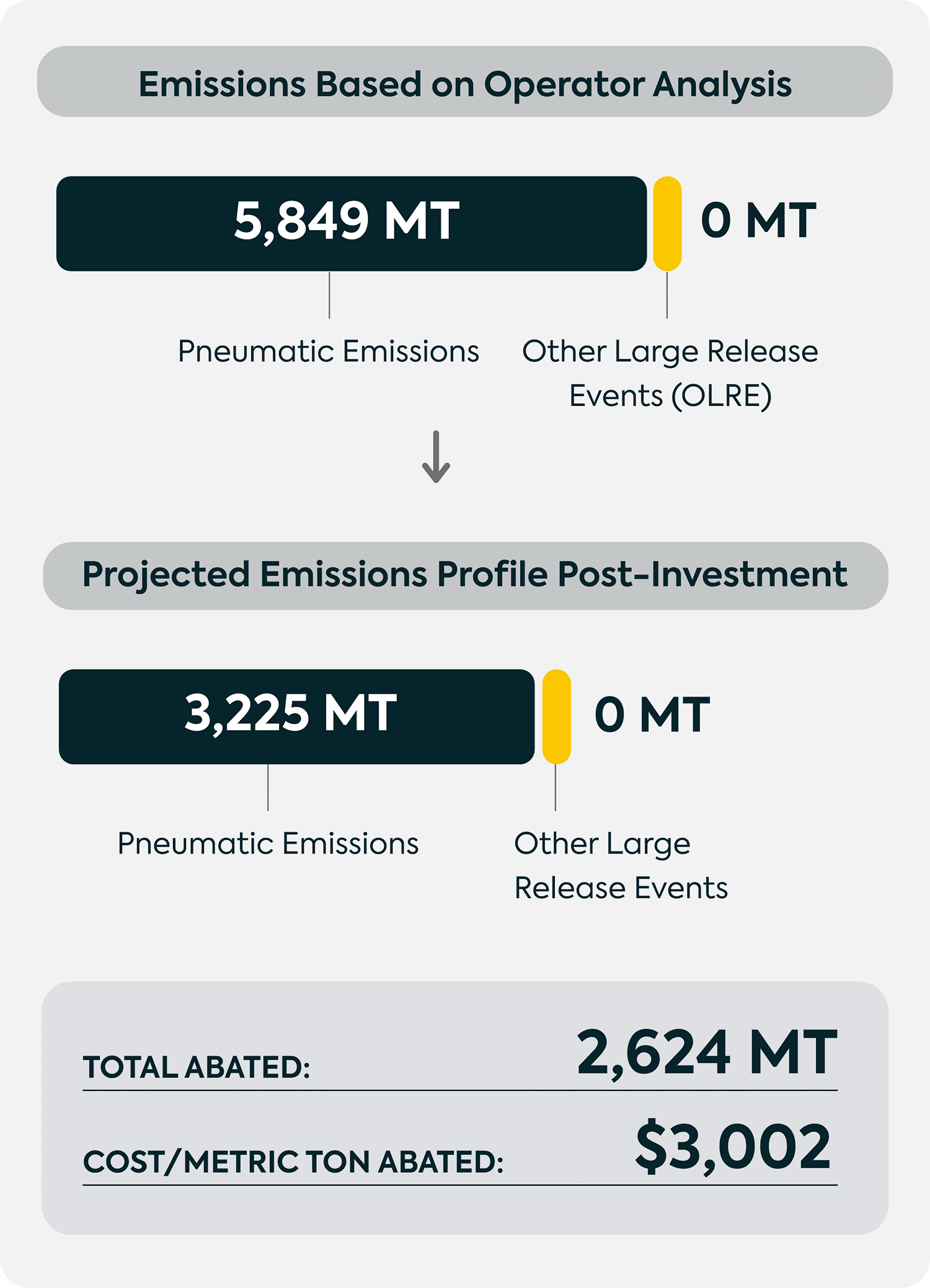
Utilizing Project Canary Forecasting & Risk Assessment
Strategy: Balance investment between pneumatics retrofits and measurement to reduce risk exposure from Other Large Release Events (OLRE)
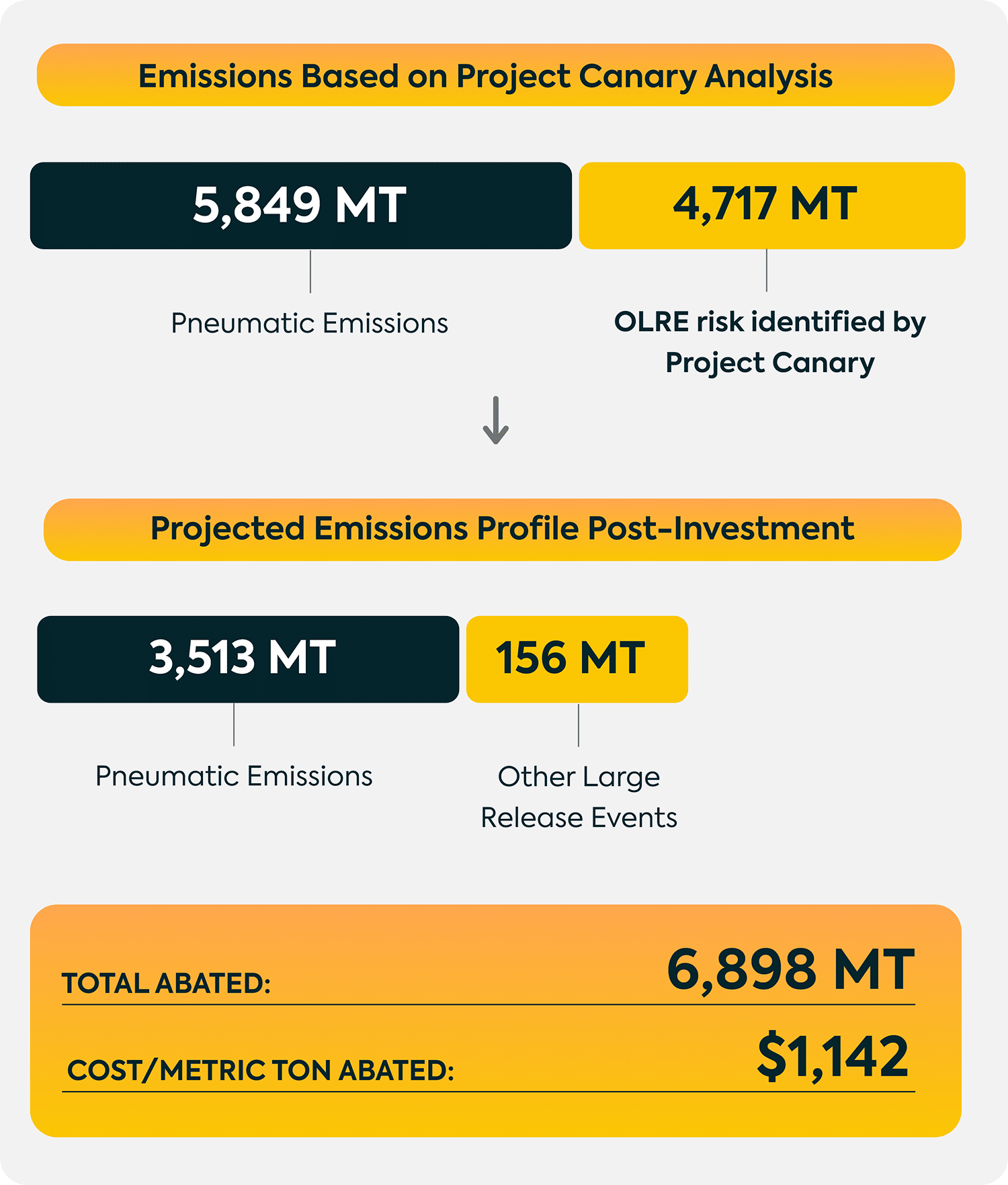
Achieving OGMP 2.0 Level 4
The operator wanted to achieve OGMP 2.0 Level 4, requiring that they deploy the correct suite of measurement technologies, refine their source-level emissions inventory, and update their emission factors.
Project Canary helped the operator by deploying and ingesting a tailored suite of technologies, including point sensors, integrated flyover data, and fixed Optical Gas Imaging (OGI) cameras. This comprehensive approach facilitated root-cause analysis of emissions sources and ensured the accuracy of the emissions inventory. As a result, the operator was positioned to achieve OGMP 2.0 compliance successfully.
Estimate vs. Measurement Comparison:

OGI Technology Integrated into Project Canary Platform
